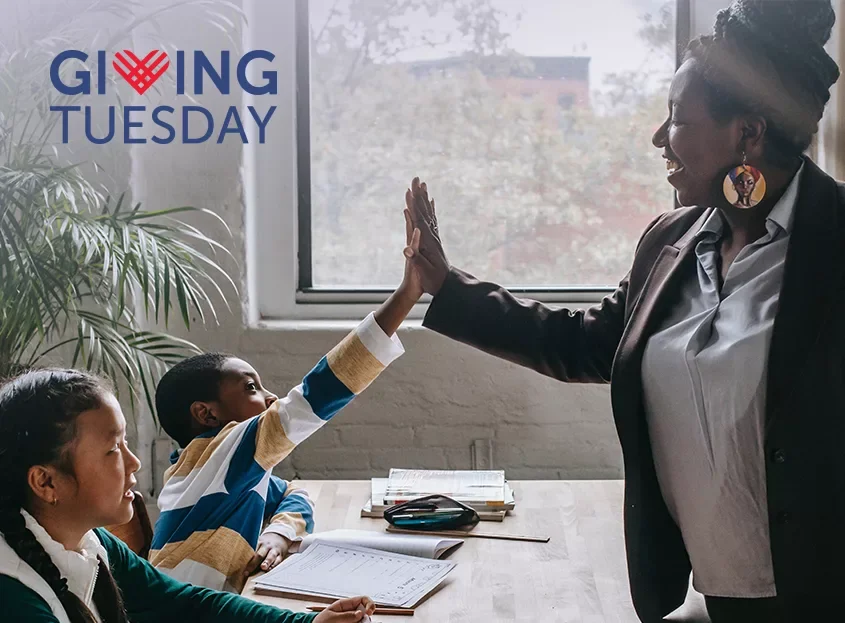Exploring the Benefits of Giving Tuesday

You may have heard a lot about ‘Giving Tuesday’ recently. Giving Tuesday is celebrated every year on the Tuesday following Black Friday and Cyber Monday. It is a global day of giving powered by the influence of social media and global collaboration, with thousands of Giving Tuesday partners across the world.
Created in 2012 at New York’s 92nd Street Y, Giving Tuesday has been described as a movement that unleashes the power of radical generosity around the world. But beyond the hashtags and social media posts, how much of an impact does it really have here in the UK?
Let’s start with the data. In its first year, it is estimated that $10 million was donated to charity on Giving Tuesday. The following year it was $28 million. Last year, it grew to $3.1 billion globally, with the movement collecting support from philanthropic giants such as the Bill and Melinda Gates Foundation, MacKenzie Scott and Alphabet/Google.
The figures are more modest outside the US. In the UK, Giving Tuesday 2022 generated approximately £20m in donations. Its impact, however, is growing, and that’s something we can take encouragement from as an indicator of growth in the UK’s philanthropic sector.
Given the turbulence of recent years following the pandemic, rising energy prices and the cost-of-living crisis, charities in the UK have been stretched to their limits and need all the help they can get. Despite the recent challenges, philanthropists have reacted well. For example, grants to charitable organisations from NPT UK on behalf of our donors rose 71% in value during FY2023 compared to the previous year, and there is every indication this growth will continue.
Traditionally, the final few weeks of the year are some of the most important for charities as they strive to meet their fundraising targets. Statistics suggest people feel most charitable at the end of year, during what many call ‘Giving Season.’ Approximately 31% of all annual giving in the UK occurs in December alone. Initiatives like Giving Tuesday help channel this into a coordinated and constructive effort.
Having said that, the Giving Tuesday movement does not position itself as the only, or best, route through which to donate to charity. Charities require regular donations recurring throughout the year. While not the end all and be all of philanthropy, the Giving Tuesday initiative successfully shines a spotlight on giving, starts conversations about our ability to do good, and encourages those who care deeply about social impact to learn how they can generate positive results with their donations or time.
The organisers’ original intention was for Giving Tuesday to inspire a year-long commitment to fostering generosity in all ways. A poll last year suggests they have been successful, with 73% of those aged 18-34 agreeing that such a day is important and almost two thirds saying it would mean they would be more likely to donate.
What started as a simple idea to encourage people to do good has grown exponentially, inspiring millions of people the world over to give, volunteer or do both. As an independent campaign with no agenda other than to inspire and celebrate generosity, Giving Tuesday is a day where everyone, everywhere, can do something to support the causes that matter to them—whether through funding, time, skills or other resources.
It reminds us of the fundamental values of philanthropy; nobody owns the act of ‘doing good’ and we will have the greatest impact if we collectively support one another.
NPT UK is not affiliated with any of the organisations described herein, and the inclusion of any organisation in this material should not be considered an endorsement by NPT UK of such organisation, or its services or products.
NPT UK does not provide legal or tax advice. This blog post is for informational purposes only and is not intended to be, and shall not be relied upon as, legal or tax advice. The applicability of information contained here may vary depending on individual circumstances.


